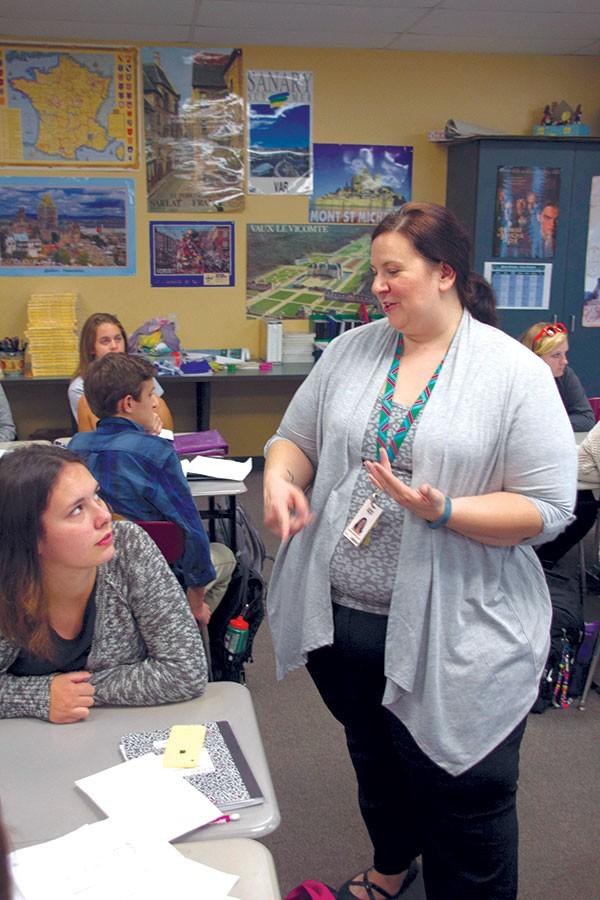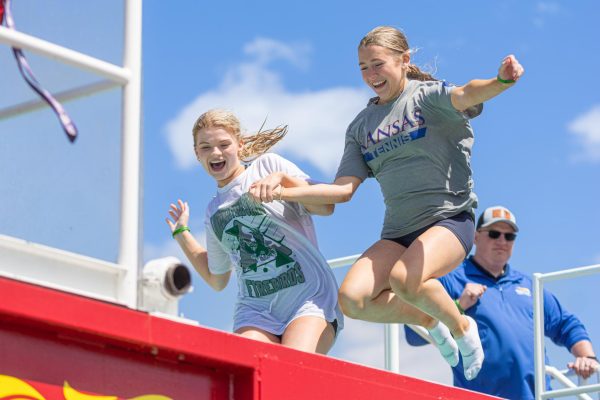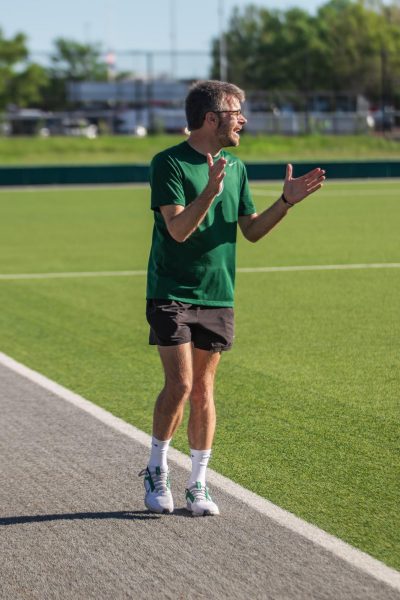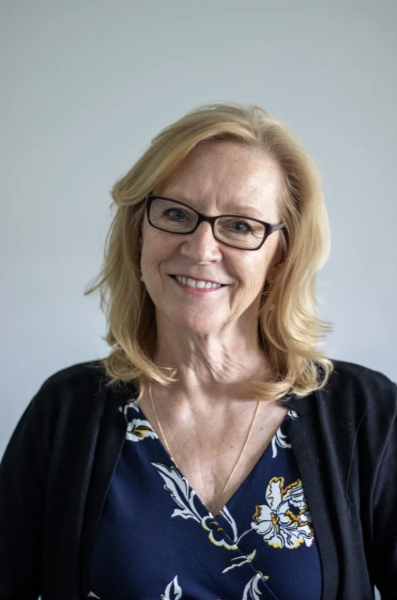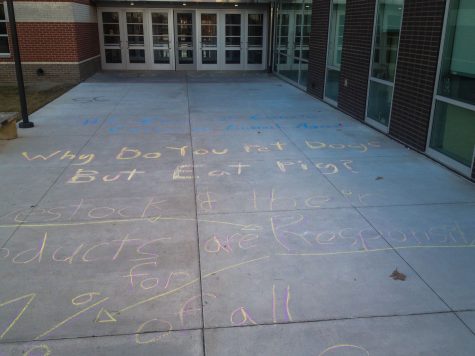Spanish three classes take new approach on foreign language education
During fourth hour, Williams explains a concept to Spanish 3 student, sophomore Kaya Shafter. Williams has created a new homework system for her classes, focusing on student activities rather than bookwork.
Sophomore Jackson Mason goes home after a long day of school. He looks at his Spanish homework to see what activity he should do for this week. After deciding to listen to a Latin radio station on Pandora for an hour, Mason puts on his headphones, presses play, and earns three homework points.
The type of homework in Amanda Williams’ Spanish classroom is different than traditional educational set-ups. In order to earn points, students must complete activities dealing with the Spanish language rather than complete book work. Students must complete three or more points by the end of the week for credit.
“I thought about different ways I could get students connected with Spanish in their own way,” Williams said. “I did a little bit of research and found other teachers who were exploring different styles of homework too.”
Now, instead of pages of vocab practice, students can complete assignments like reading a Spanish language book for 30 minutes or listening to a Spanish station on Pandora. Mason likes ditching the pages and doing the activities instead.
“It’s a lot easier than paper because I can do it at my own convenience and I can choose what I want to do,” Mason said.
Although Mason is generally excited for this new type of homework, some downsides have arisen for him.
“In the book you’re actually learning Spanish and progressing, but [with the new homework] you’re just taking stuff you learned before that and putting it into real life,” Mason said.
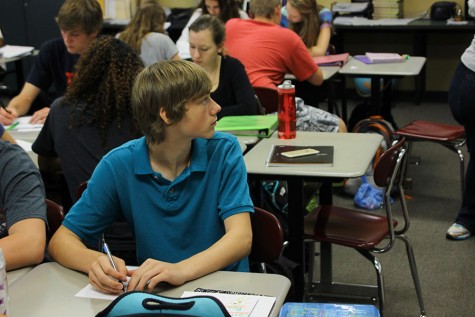
Spanish 3 student sophomore Jackson Mason pays attention while Williams explains a concept.
Williams though believes that the new homework is not only helping kids with Spanish. It is also helping them apply it to real life.
“Language is everywhere,” Williams said. “It’s in literature, science, mathematics; it’s in everything, so hopefully [my students] walk away from this experience with something they can use for something else.”
In addition to gaining future experience, sophomore Elise Gard believes this type of homework goes deeper by focusing more on the culture of the language than the vocabulary.
“I think it is helpful with getting more knowledge, not with the vocab but about the culture in general,” Gard said. “The activities we can do help introduce us and get us more used to the culture.”



